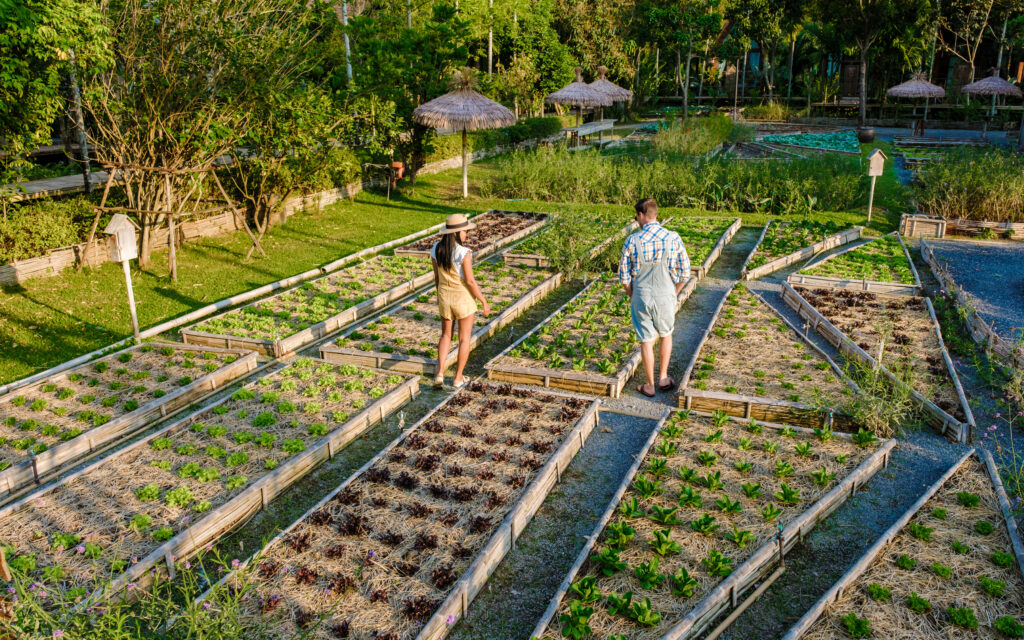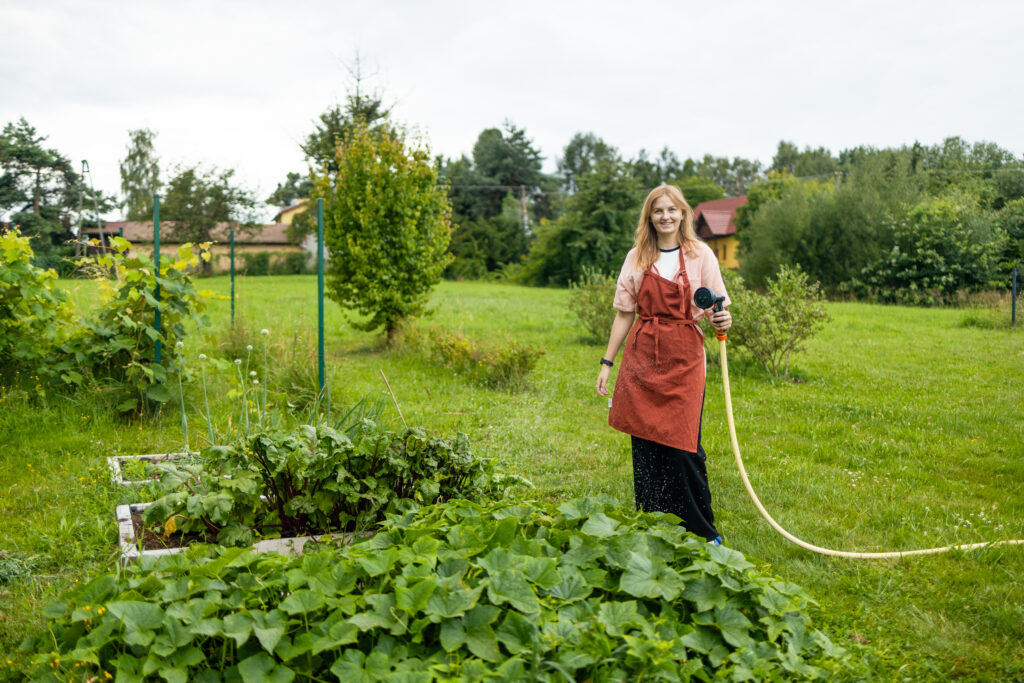
Introduction
Organic gardening is a fulfilling and eco-friendly way to grow your own food while protecting the environment. With increasing awareness of the harmful effects of chemical pesticides and fertilizers, many people are turning to organic methods. Whether you have a small backyard or just a few pots on your balcony, you can easily start an organic garden from scratch. Here’s a step-by-step guide to help you grow healthy, organic plants and ensure your garden thrives.
Choose the Right Location
The success of your organic garden starts with location. Most plants need at least 6-8 hours of sunlight a day to grow well, so pick a sunny spot. If you’re limited on space, you can use containers or raised beds on a patio or balcony.
- Pro tip: If you’re growing vegetables, ensure the spot gets morning sun, as it’s gentler on plants than intense afternoon rays.
Plan Your Garden Layout
Before planting, plan your garden’s layout. Choose crops suited to your climate, soil, and available space. Start small if you’re a beginner to avoid being overwhelmed. Common organic crops include tomatoes, lettuce, herbs, carrots, and cucumbers.
Key Considerations:
- Companion Planting: Growing certain plants together can boost growth and keep pests away. For example, basil improves the flavour of tomatoes and deters insects.
- Succession Planting: Stagger your planting schedule to ensure a continuous harvest, instead of having everything ripen at once.
Create Healthy Soil
Healthy soil is the foundation of any organic garden. Instead of using synthetic fertilizers, focus on building nutrient-rich soil that will sustain your plants.
Steps to Improve Soil Quality:
- Composting: Composting is a cornerstone of organic gardening. You can make your own compost from kitchen scraps, grass clippings, leaves, and other organic matter. This will feed your soil with essential nutrients.
- Mulching: Organic mulch like straw, leaves, or wood chips helps retain moisture, reduce weeds, and gradually enrich the soil.
- Soil Testing: A simple soil test can help you understand the pH and nutrient levels of your soil. This helps you know what organic amendments (like compost or rock minerals) your soil needs.
Choose Organic Seeds and Plants
Not all seeds and plants are created equal. To ensure you’re growing a truly organic garden, buy organic seeds or seedlings. These have been grown without synthetic chemicals and are often bred to be more resilient in organic conditions.
Where to Find Organic Seeds:
- Local nurseries often carry organic varieties.
- Online stores like Johnny’s Selected Seeds, Seed Savers Exchange, and Baker Creek Heirloom Seeds specialize in organic and heirloom options.
Water Wisely

Proper watering is crucial for plant health. Organic gardens rely on natural resources, so use water efficiently.
Watering Tips:
- Water in the Morning: Watering in the morning helps prevent disease by giving plants time to dry out during the day.
- Use a Soaker Hose or Drip Irrigation: These systems deliver water directly to the roots, reducing water waste.
- Rainwater Harvesting: Install a rain barrel to collect and store rainwater for your garden. It’s free and eco-friendly!
Practice Organic Pest Control
Pest control in organic gardening focuses on prevention and using natural methods to manage pests. Avoid chemical pesticides and instead use biological and mechanical solutions.
Organic Pest Control Methods:
- Attract Beneficial Insects: Encourage beneficial insects like ladybugs, lacewings, and predatory wasps by planting flowers such as marigolds, daisies, and yarrow.
- Handpicking: If pests like caterpillars or beetles appear, simply pick them off your plants by hand.
- Neem Oil and Insecticidal Soap: These are organic solutions that can help control common pests without harming your plants.
Feed Your Plants Naturally
Instead of synthetic fertilizers, organic gardeners rely on natural fertilizers and soil amendments.
Best Organic Fertilizers:
- Compost Tea: Steep compost in water to create a nutrient-rich liquid for feeding plants.
- Fish Emulsion: An excellent organic fertilizer that provides nitrogen and other nutrients.
- Worm Castings: Rich in nutrients and beneficial microbes, worm castings are great for boosting plant health.
Weed Control Without Chemicals
Weeds compete with your plants for water and nutrients, so controlling them is essential. Organic methods focus on prevention and natural removal.
Weed Control Strategies:
- Mulching: As mentioned earlier, mulch suppresses weeds by blocking sunlight.
- Hand Weeding: Regular hand weeding is an effective way to keep weeds under control.
- Corn Gluten Meal: This natural herbicide can prevent weed seeds from sprouting.
Rotate Crops
Crop rotation is an essential practice in organic gardening that helps maintain soil fertility and prevent the buildup of pests and diseases. Don’t plant the same crop in the same spot year after year—rotate them with different plant families.
Benefits of Crop Rotation:
- Prevents soil depletion of nutrients.
- Reduces the risk of disease and pest infestations.
Stay Patient and Observe

Organic gardening requires patience. It takes time to build healthy soil and establish an ecosystem in your garden. Regularly observe your plants for any signs of stress or pests, and make adjustments as needed.
Final Thoughts
Starting an organic garden from scratch is a rewarding experience that promotes sustainability and provides you with fresh, chemical-free produce. By focusing on healthy soil, natural pest control, and proper plant care, you can grow a thriving garden that aligns with the principles of organic living.
